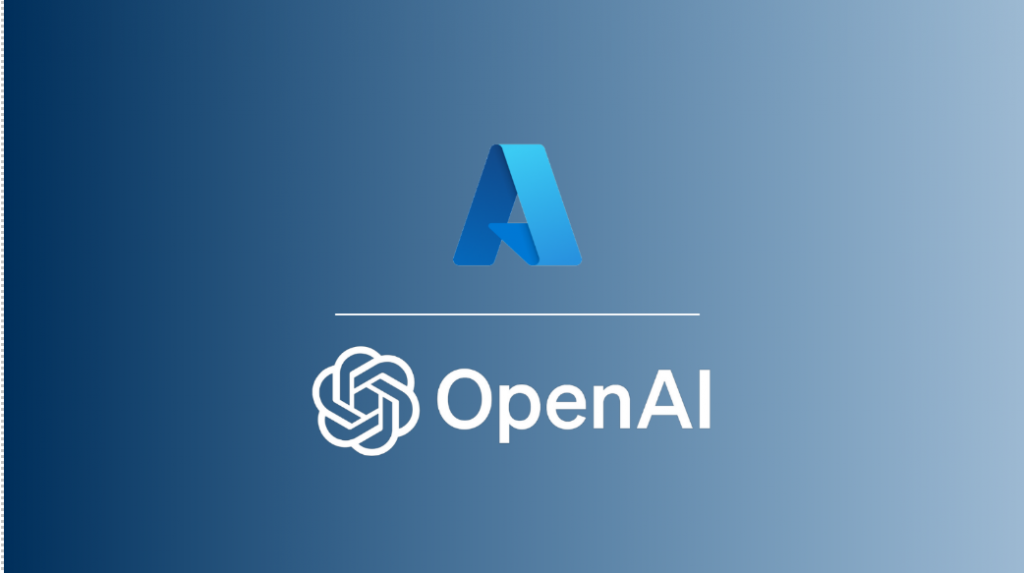Cloud DevOps Engineer
A DevOps engineer is a professional who combines expertise in development or infrastructure management with a deep understanding of collaboration, processes, and products. This enables them to continually deliver value in organizations. DevOps engineers assist in designing and implementing strategies that encompass collaboration, coding, infrastructure, source control, security, compliance, continuous integration, testing, delivery, monitoring, and feedback.
As organizations increasingly adopt agile methodologies and emphasize continuous integration and delivery, the demand for DevOps engineers is on the rise. These professionals play a crucial role in bridging the gap between software development, quality assurance, and IT operations, thus enabling faster and more efficient deployment of software. Additionally, their skills in automation, process reengineering, and system optimization are highly valued. The evolving landscape of cloud technologies and the increasing focus on cybersecurity further enhance the career opportunities for DevOps engineers, making it a lucrative and dynamic field to be in.
Career Accelerator Program
A comprehensive training program for DevOps engineers involves covering a wide range of technical skills, methodologies, and tools essential for their role. This training program is dynamic, with frequent updates to incorporate new tools and practices as the field evolves. Offering a blend of theoretical knowledge, practical hands-on sessions, and real-world problem-solving scenarios will equip DevOps engineers with the skills needed to excel in their roles.
1. Foundation in Development and Operations
Develop a solid grounding in software development, IT operations, and agile methodologies. This foundation is crucial for understanding the lifecycle of software and the basic operational skills required in DevOps.
2. Core DevOps Principles
Introduce the key principles and cultural practices of DevOps, focusing on improving collaboration between development and operations teams, and enhancing overall process efficiency.
3. Tools and Technologies
Provide comprehensive training on essential DevOps tools for version control, CI/CD, configuration management, containerization, and cloud platforms, ensuring engineers are proficient in the technologies that facilitate DevOps practices.
4. Scripting and Automation
Equip participants with skills in scripting and automation to streamline workflows and deployments, using common languages like Bash and Python.
5. Security Practices
Integrate security into the DevOps pipeline by teaching security best practices and the use of tools for security testing and vulnerability analysis.
6. Performance and Optimization
Focus on optimizing software performance and infrastructure management, including monitoring and fine-tuning applications and systems for better efficiency.
7. Real-World Scenarios and Case Studies
Engage with practical, project-based learning and analyze case studies to understand the application of DevOps strategies in real-world scenarios.
Develop stage includes the critical applied skills deigned to significantly enhance practical skills and overall productivity of a DevOps Engineer. The program will start by identifying the specific skills and competencies that the DevOps engineer need to develop.
1. Define Objectives
The program start by identifying the specific skills and competencies that the DevOps engineer need to develop. This could include areas like automation, cloud services, security practices, and continuous integration/continuous deployment (CI/CD) processes.
2. Skill Assessment
Evaluate the current skill levels of your DevOps team to tailor the training program effectively. This can be done through self-assessments, performance reviews, or a skills audit.
3. Curriculum Design
Based on the objectives and skill assessments, curriculum is designed that covers:
- Fundamentals of DevOps: Core principles, practices, and the DevOps lifecycle.
- Tools and Technologies: Training on key tools such as Docker, Jenkins, Kubernetes, Terraform, and cloud platforms like AWS, Azure, or Google Cloud.
- Automation and Scripting: Hands-on sessions on automating processes using scripting languages like Python, Bash, or PowerShell.
- Security and Compliance: Best practices in DevSecOps, including security automation and compliance monitoring.
- Soft Skills: Communication, teamwork, and problem-solving skills tailored for DevOps environments.
4. Training Methods
Implement a mix of training methods to cater to different learning styles:
- Workshops and Hands-on Labs: Practical sessions where engineers can work on real or simulated projects.
- Mentorship Programs: Pair less experienced engineers with seasoned DevOps professionals.
- Tech Talks and Seminars: Regular sessions with internal or external experts to discuss latest trends and challenges.
5. Implementation Plan
Develop a timeline for the training program, including milestones and evaluation points. Ensure that the training is scalable and flexible to accommodate various schedules.
6. Monitoring and Feedback
Establish mechanisms for ongoing monitoring of the program’s effectiveness through regular feedback, assessments, and adjustments based on evolving needs.
For DevOps engineers focusing on Azure and AWS, there are several certification programs available that validate skills and expertise in utilizing these cloud platforms effectively for DevOps practices. Here’s a breakdown of the key certifications for each:
Azure DevOps Certifications
Microsoft Certified: DevOps Engineer Expert- Prerequisites: Candidates must be certified either as Azure Administrator Associate or Azure Developer Associate.
- Focus: This certification covers designing and implementing strategies for collaboration, code, infrastructure, source control, security, compliance, continuous integration, testing, delivery, monitoring, and feedback.
- Focus: While not exclusively for DevOps, knowledge of Azure administration is crucial for implementing DevOps practices. This certification covers managing Azure identities, governance, storage, compute, and virtual networks.
AWS DevOps Certifications
AWS Certified DevOps Engineer – Professional- Prerequisites: It is recommended to have the AWS Certified SysOps Administrator – Associate certification or AWS Certified Developer – Associate certification first.
- Focus: This certification validates technical expertise in provisioning, operating, and managing distributed application systems on the AWS platform. It covers automation and management of CI/CD processes, monitoring and logging practices, and policies for governance.
- Focus: Though more focused on operations, it serves as a foundational certification for DevOps roles by covering deployment, management, and operations on AWS.
Additional Recommendations
- AWS Certified Solutions Architect – Associate: While not specifically for DevOps, understanding architectural principles on AWS can be beneficial for DevOps engineers to design and implement robust and scalable systems.
- Certifications in Related Technologies: Consider certifications in tools that complement Azure and AWS for DevOps practices, such as Docker, Kubernetes (CKA, CKAD), Jenkins, Terraform, and others.
Choosing the Right Certification
- Career Goals: Choose certifications based on your specific career goals and the technologies you use. If your organization uses Azure extensively, focus on Microsoft certifications. Similarly, if AWS is the primary cloud service, opt for AWS certifications.
- Role Requirements: Consider what skills are in high demand in your current or desired role. Certifications can be a strategic way to gain these skills or to validate existing expertise.
Engaging a certified DevOps engineer and understanding their career prospects involves several strategic considerations. Here’s how organizations can effectively engage and employ certified DevOps engineers, along with insights into the career opportunities and paths available to them.
Engaging a Certified DevOps Engineer
Identify the Need: Clearly define the role and responsibilities expected from a DevOps engineer. Understand which part of organization’s pipeline—be it development, operations, CI/CD automation, cloud management, or security—needs strengthening.
Relevant Certifications: When hiring, organizations prioritize candidates with certifications that match their technology stack. For Azure-centric environments, they look for the Microsoft Certified: DevOps Engineer Expert. For AWS environments, they consider the AWS Certified DevOps Engineer – Professional.
Practical Skills Evaluation: In addition to certifications, organizations assess candidates on practical skills through technical interviews, coding tests, and problem-solving scenarios that reflect real-world challenges they will face in the organization.
Cultural Fit and Soft Skills: DevOps is as much about culture as it is about tools and technologies. Candidates are also evaluated on their communication skills, teamwork, and adaptability.
- Remote and Flexible Working Options: Given the digital nature of the work, organizations usually offer remote or flexible working arrangements. This widens their talent pool and attract top talent looking for such opportunities.
Career Prospects for Certified DevOps Engineers
Career Growth: DevOps engineers can advance to senior roles like Senior DevOps Engineer, DevOps Architect, or DevOps Manager. These positions involve broader responsibilities including strategic planning and team management.
Specialization: Depending on interest and business needs, DevOps engineers can specialize in areas like Cloud Architecture, Security (DevSecOps), or Automation. Specializing often leads to increased demand and higher compensation.
Transition to Related Roles: Skills developed in DevOps roles, such as automation, coding, system administration, and cloud management, are highly transferable. This allows for transitions into roles like software development, system architecture, and IT project management.
Consultancy and Freelancing: Experienced DevOps engineers can also work as consultants or freelancers, advising multiple organizations on their DevOps strategies and implementations. This path offers flexibility and varied project experiences.
Teaching and Mentoring: With experience, there’s an opportunity to teach at educational institutions or conduct corporate training sessions, sharing knowledge and skills with upcoming professionals.





